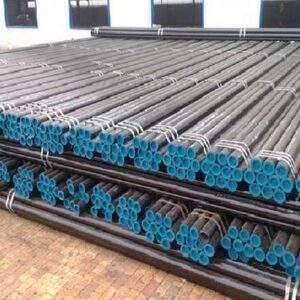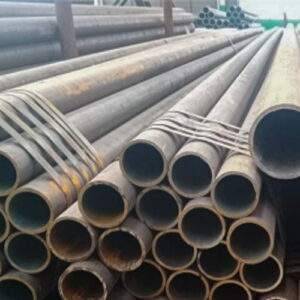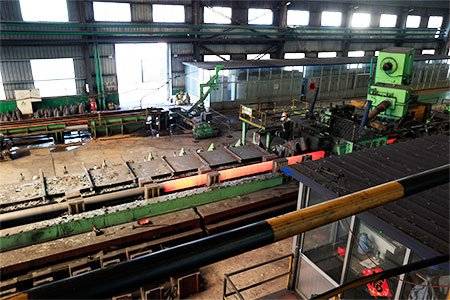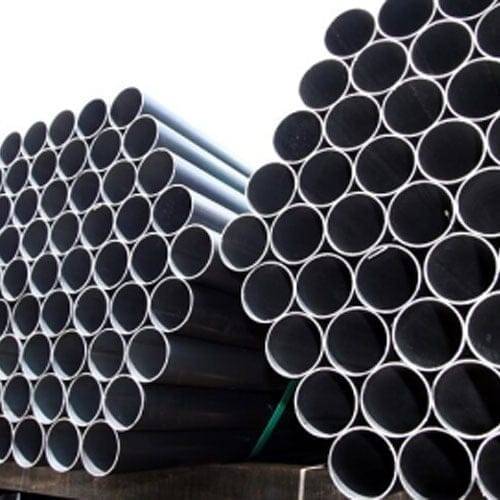Welcome to My Blog!
Before we dive into the content, I’d love for you to join me on my social media platforms where I share more insights, engage with the community, and post updates. Here’s how you can connect with me:
Facebook:https://www.facebook.com/profile.php?id=61559060896490
Now, let’s get started on our journey together. I hope you find the content here insightful, engaging, and valuable.
Introduction

Carbon steel pipes have become a staple in construction projects due to their strength, durability, and versatility. As one of the most widely used materials in the construction industry, carbon steel pipes offer numerous advantages that make them ideal for various applications, including structural support, fluid transport, and more. This blog explores the benefits of using carbon steel pipes in construction projects, highlighting their properties, applications, and overall impact on project efficiency and cost-effectiveness.
Understanding Carbon Steel Pipes
What Are Carbon Steel Pipes?
Carbon steel pipes are made from steel that contains carbon as the primary alloying element. The carbon content typically ranges from 0.05% to 2.0%, influencing the material’s properties, including strength, ductility, and corrosion resistance. These pipes come in various grades and sizes, making them suitable for a wide range of applications.
Key Properties of Carbon Steel Pipe
- Strength: Carbon steel pipe are known for their high tensile strength, making them suitable for heavy-duty applications.
- Durability: These pipes can withstand harsh environmental conditions, ensuring longevity in construction projects.
- Versatility: Carbon steel pipe can be used in various applications, from plumbing to structural support.
Benefits of Carbon Steel Pipes
High Strength and Load-Bearing Capacity
One of the primary benefits of carbon steel pipe is their high strength and load-bearing capacity. This makes them suitable for structural applications where heavy loads are expected. In construction projects, using carbon steel pipe ensures that structures can handle the stresses of weight and pressure, minimizing the risk of failure.
Cost-Effectiveness
Carbon steel pipe offer an economical solution for construction projects. Compared to other materials like stainless steel or copper, carbon steel pipe are more affordable, making them a budget-friendly option for large-scale projects. Additionally, their durability reduces the need for frequent replacements, leading to long-term savings.
Ease of Fabrication and Installation
Carbon steel pipe are relatively easy to fabricate and install. They can be cut, welded, and shaped to fit specific project requirements. This flexibility allows for quicker installation times, which can significantly reduce labor costs and project timelines.
Excellent Corrosion Resistance
While carbon steel pipes are prone to corrosion, protective coatings and treatments can enhance their resistance to rust and degradation. Many manufacturers offer galvanized or coated carbon steel pipe that can withstand various environmental factors, making them suitable for both indoor and outdoor applications.
| Property | Benefit | Application |
|---|---|---|
| High Strength | Can support heavy loads | Structural beams, columns |
| Cost-Effectiveness | Economical solution for large projects | Residential and commercial buildings |
| Ease of Fabrication | Quick installation and customization | Piping systems, HVAC installations |
| Corrosion Resistance | Long-lasting performance with coatings | Outdoor pipelines, industrial applications |
| Versatility | Suitable for multiple applications | Water supply, gas transport |
Versatility in Applications
Carbon steel pipes are incredibly versatile and can be used in a variety of construction applications. Whether for plumbing systems, HVAC installations, or structural supports, these pipes can meet diverse project requirements. Their adaptability makes them a go-to choice for engineers and architects alike.
High Thermal Conductivity
Carbon steel pipes have excellent thermal conductivity, making them suitable for applications where heat transfer is essential. In plumbing systems, for instance, carbon steel pipe can efficiently transport hot water or steam, contributing to energy efficiency in heating systems.
Environmental Considerations
Carbon steel pipes are often recyclable, making them an environmentally friendly option for construction projects. As sustainability becomes increasingly important in the construction industry, using recyclable materials like carbon steel pipe can help reduce the environmental footprint of a project.
Applications of Carbon Steel Pipes in Construction
Structural Support
In construction projects, carbon steel pipes are frequently used as structural supports. Their strength and load-bearing capacity make them ideal for use in beams, columns, and frames, providing the necessary stability for buildings and bridges.
Plumbing Systems
Carbon steel pipe are commonly employed in plumbing systems for transporting water, gas, and other fluids. Their ability to handle high pressure and temperature makes them suitable for various plumbing applications, including residential and commercial buildings.
HVAC Systems
In HVAC installations, carbon steel pipe are used for heating and cooling systems. Their high thermal conductivity allows for efficient heat transfer, ensuring optimal performance in heating and cooling applications.
Industrial Applications
Carbon steel pipes are widely used in industrial settings for transporting chemicals, oil, and gas. Their durability and resistance to pressure make them suitable for various industrial processes, ensuring safe and reliable transport of materials.
Construction of Pipelines
Carbon steel pipe are a preferred choice for constructing pipelines, especially for water supply and sewage systems. Their strength and corrosion resistance (when properly treated) make them suitable for long-term use in pipeline applications.
Challenges and Considerations

Corrosion Management
While carbon steel pipes are durable, they require proper maintenance to manage corrosion. Implementing protective coatings and regular inspections can help extend the lifespan of these pipes and ensure optimal performance.
Weight Considerations
Carbon steel pipes are relatively heavy compared to other materials like PVC or fiberglass. This weight can pose challenges during transportation and installation, requiring additional labor and equipment.
Temperature Limitations
Although carbon steel pipe have good thermal conductivity, extreme temperature fluctuations can affect their integrity. Careful consideration must be given to the environmental conditions in which these pipes will be used.
Conclusion
Carbon steel pipes are an essential component of modern construction projects, offering numerous benefits including strength, cost-effectiveness, and versatility. Their applications range from structural support to plumbing and industrial uses, making them a reliable choice for engineers and builders. As the construction industry continues to evolve, the role of carbon steel pipe will remain significant, contributing to the efficiency and durability of structures worldwide.
FAQ
What are carbon steel pipes?
Carbon steel pipes are pipes made from steel that contains carbon as the primary alloying element, offering high strength and durability for various applications.
What are the main benefits of using carbon steel pipe in construction?
The main benefits include high strength, cost-effectiveness, ease of fabrication, excellent corrosion resistance (with proper coatings), versatility, high thermal conductivity, and environmental considerations.
What are common applications for carbon steel pipes?
Common applications include structural support, plumbing systems, HVAC installations, industrial applications, and the construction of pipelines.
How do carbon steel pipes compare to other materials?
Carbon steel pipes are generally more affordable and stronger than many alternatives, such as stainless steel or PVC, making them suitable for heavy-duty applications.
What challenges are associated with carbon steel pipes?
Challenges include managing corrosion, weight considerations, and limitations regarding temperature fluctuations.




